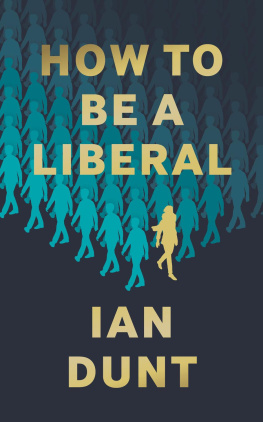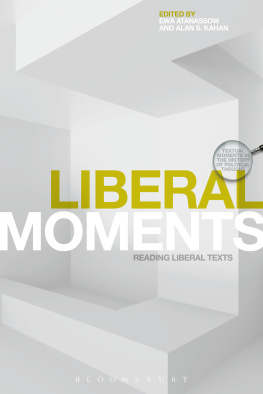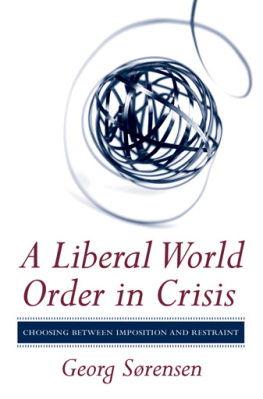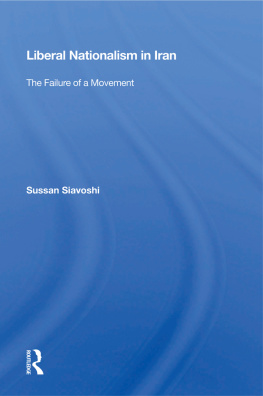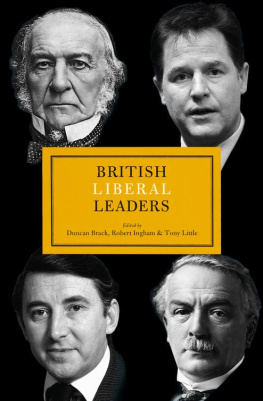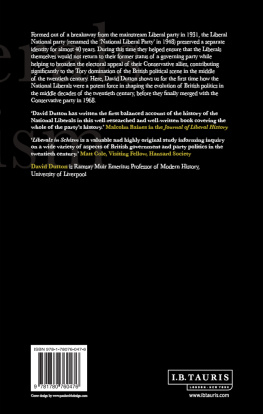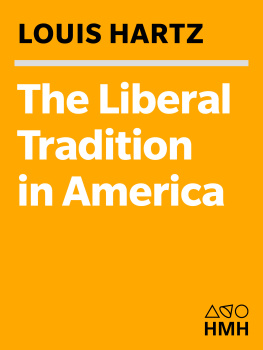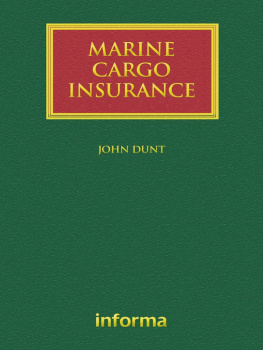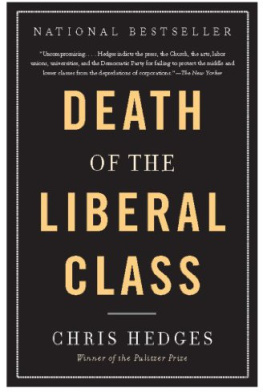Ian Dunt - How to Be a Liberal
Here you can read online Ian Dunt - How to Be a Liberal full text of the book (entire story) in english for free. Download pdf and epub, get meaning, cover and reviews about this ebook. year: 2020, publisher: Canbury Press, genre: Religion. Description of the work, (preface) as well as reviews are available. Best literature library LitArk.com created for fans of good reading and offers a wide selection of genres:
Romance novel
Science fiction
Adventure
Detective
Science
History
Home and family
Prose
Art
Politics
Computer
Non-fiction
Religion
Business
Children
Humor
Choose a favorite category and find really read worthwhile books. Enjoy immersion in the world of imagination, feel the emotions of the characters or learn something new for yourself, make an fascinating discovery.
How to Be a Liberal: summary, description and annotation
We offer to read an annotation, description, summary or preface (depends on what the author of the book "How to Be a Liberal" wrote himself). If you haven't found the necessary information about the book — write in the comments, we will try to find it.
How to Be a Liberal — read online for free the complete book (whole text) full work
Below is the text of the book, divided by pages. System saving the place of the last page read, allows you to conveniently read the book "How to Be a Liberal" online for free, without having to search again every time where you left off. Put a bookmark, and you can go to the page where you finished reading at any time.
Font size:
Interval:
Bookmark:
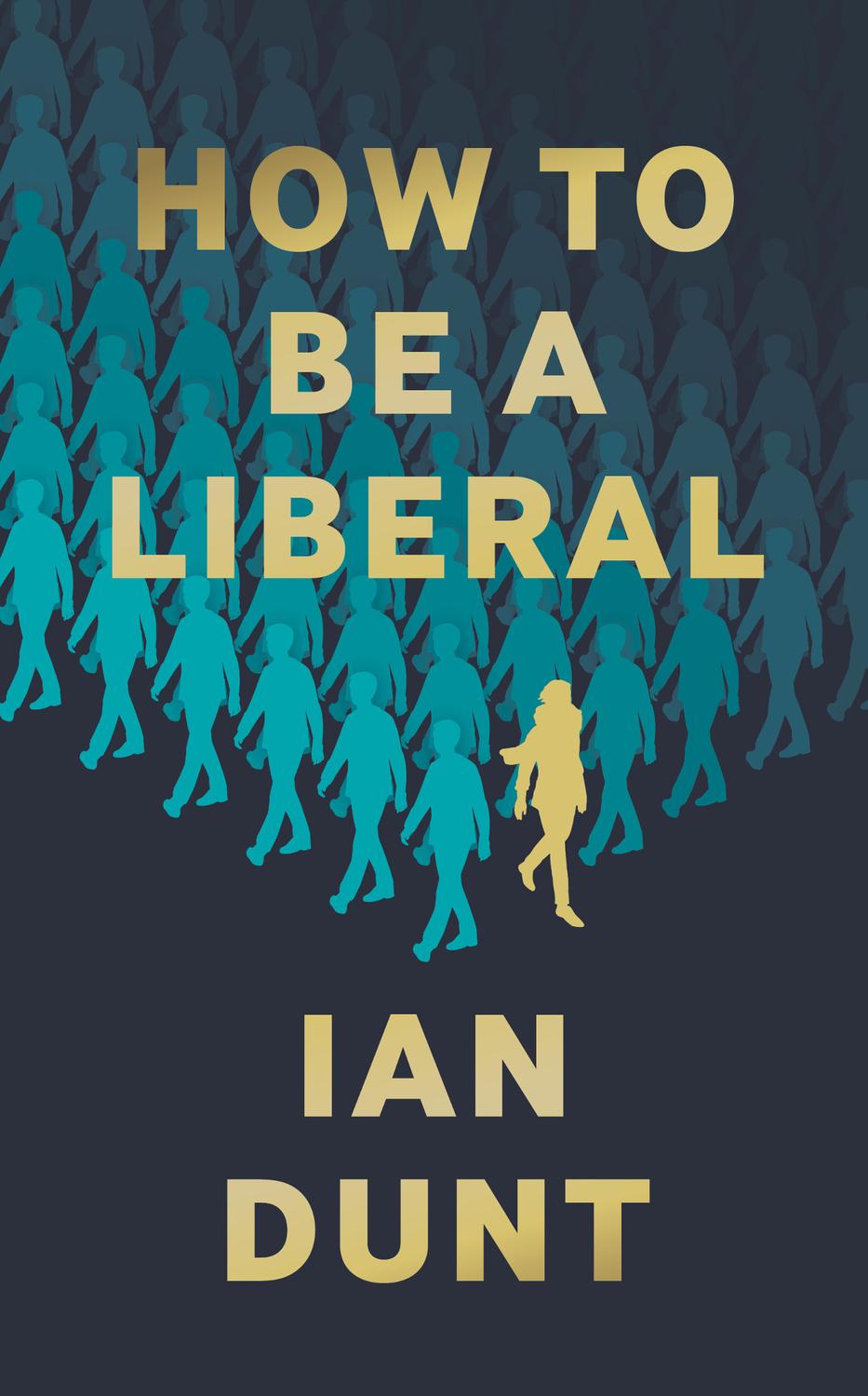
To mum and dad,
who gave me the two most important gifts of all:
To be loved, and to be free
Nationalism is marching across the world.
Nowhere is immune to its advance. Everywhere must come to terms with the threat it poses.
In the last few years, nationalism has become the driving force behind the Republican party in the United States, the Conservative party in Great Britain, the Bharatiya Janata party in India, Likud in Israel, the Alliance for Brazil in Brazil and PDPLaban in the Philippines. It conquered Hungary under Fidesz and Poland under Law and Justice. It dominated political debate in Italy through the Lega, Austria through the Freedom Party, Bulgaria through Attack and Estonia through the EKRE.
Sometimes it loses a battle. Sometimes it wins. In some countries, it takes over the government in its entirety. In others, it acts as a junior partner in a coalition. Often it does not even need power. It simply dictates the political narrative from opposition.
Wherever nationalism establishes a position, it transmits its narrative, which consists of six lies, or a combination of them.
The first lie is that you do not exist as an individual. Nationalism claims that society is composed of two groups, who are in a perpetual conflict with one another: the people and the elite.
In reality, neither of these groups exist. There is no such thing as the people. Individuals do not compose a homogeneous mass. They do not speak with one voice. They have different values, interests and eccentricities. They are not singular, but plural.
The elite is also a fiction. There is no one centre of power, not in politics, economics, culture or anywhere else. The world is composed of distinct clusters of power, which sometimes flow together and sometimes apart.
The notion of the people versus the elite sounds like a challenge to power, but that is a misdirection. In fact, it consolidates power. It does this by creating a moral through-line, a fairy story, by which the nationalists can claim unchallengeable legitimacy on the basis of those they claim to represent. In their eyes, only the votes of the people who agree with them count as democracy. The rest of the population is ignored.
This process warps and diminishes what it is possible for humanity to be. Nationalism pretends that we have only one identity, that we cannot be more than one thing at once. It makes us uniform and categorised, a part of the mass: an undifferentiated component of the whole.
The second lie is that the world is simple. This lie proceeds logically from the first. If the world is split between two groups, instead of being a vast and diffuse network of individual and organisational interests, it follows that all that is wrong is the result of the elite and all that is right is the result of the people.
The notion of complexity is thereby eradicated from existence. The great ecosystems of the world from trading networks, to law, finance and sovereignty are wiped away. They are replaced by childish assessments of problems and infantile proposals for their solution.
These solutions never work, because they do not address the real-world circumstances which caused them. But when they fail, as they invariably do, the blame is not placed on nationalism. It is placed on a conspiracy of the elite. Nationalism therefore works as its own intellectual consolidation and enforcement program. The things which disprove it are used to justify it. The events which go against it are taken as evidence of its necessity.
The third lie is that you must not question. To speak out, to interrogate, to inquire, is to reject the purity of the people. It is to place yourself above them.
Independent minds are a threat to power. Their mere existence disproves nationalisms world view and their conclusions undermine its policy platform. They are a living refutation of the notion of a binary class system of the people and the elite. It is therefore necessary that they should be denigrated and abused. They are branded enemies of the people.
The fourth lie is that institutions are engaged in a conspiracy against the public. On a national level, these institutions include the courts, the parliament or Congress, the press, charities and research institutes. On an international level, they include the United Nations, the European Union, the World Health Organisation, and the World Trade Organisation.
By their nature, institutions limit the power of government. They scrutinise it, balance it, separate it, hold it to account, block it from taking illegal actions and force it to abide by democratic standards. Internationally, they solve problems countries cannot handle on their own, demonstrating the capacity of humankind to co-operate across national borders.
The narrative of the people versus the elite does not allow for that degree of organisation. If the people are pure and the nationalists represent them, then there can be no legitimate restrictions on their expression. So the institutions are attacked, at all levels, at all times. First they are discredited. Then they are disabled. Then they are destroyed.
The fifth lie is that difference is bad. This applies to people from other countries, or with different coloured skin, or sexuality, or clothing, or language. This view is entailed by the concept of the people as a singular, virtuous body. All outside entities are, by definition, a challenge to its purity.
Nationalism asserts that you should be afraid of those who are not like you. Minorities are treated as a threat to the integrity of the people, rather than proof of the richness of human experience. The language it speaks is of uniformity, conformity the machine over the organism.
The sixth lie is that there is no such thing as truth. A commitment to objective fact is treated as the mewling of the elite. Evidence and reason, the qualities that allow humanity to aspire towards certainty, are dismissed as plots against the people. Statistical authorities, academics, economic analysts, trading experts and investigative journalists are categorised as political opponents. This is because truth is a challenge to power. If voters base their views on verifiable data, the nationalist narrative can be contradicted. Those who live under its shadow are therefore encouraged to process information according to their tribal identity rather than its veracity, to close themselves off from anything that might challenge their faith.
The lies of the nationalist movement range from the gigantic to the trivial, from the systemic to the opportunistic. This disinformation is not just a means to an end. It is an end itself. It serves two distinct agendas. Firstly it attempts to redefine day-to-day events in whichever way most suits the nationalist narrative. Secondly it works to degrade the entire notion of empirical reality. If nationalists can lie without consequence, the concepts of truth and falsity fall into irrelevance. And then there will be no checks on their power whatsoever.

There is a system of thought which understands what is happening to us and offers the means to resist it. Its name is liberalism. It is the single most radical political programme in the history of humankind.
This is not because of its conclusions or its tactics. It is certainly not because of the political parties that bear its name. It is because of its unit of analysis.
Liberalism is the struggle for the freedom of the individual. When it is truly followed, it can never be the tool of the powerful. It can never be used to oppress. It can only liberate.
Font size:
Interval:
Bookmark:
Similar books «How to Be a Liberal»
Look at similar books to How to Be a Liberal. We have selected literature similar in name and meaning in the hope of providing readers with more options to find new, interesting, not yet read works.
Discussion, reviews of the book How to Be a Liberal and just readers' own opinions. Leave your comments, write what you think about the work, its meaning or the main characters. Specify what exactly you liked and what you didn't like, and why you think so.

